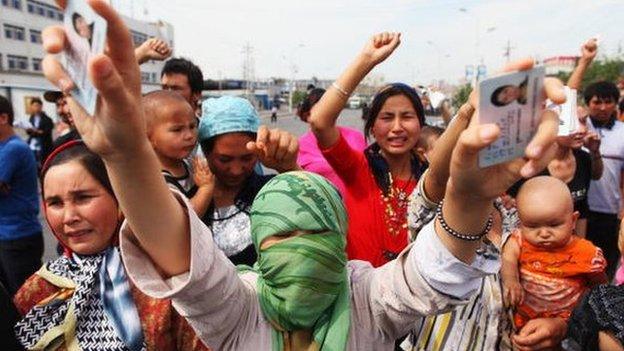China jails 32 in Xinjiang on terror charges
- Published
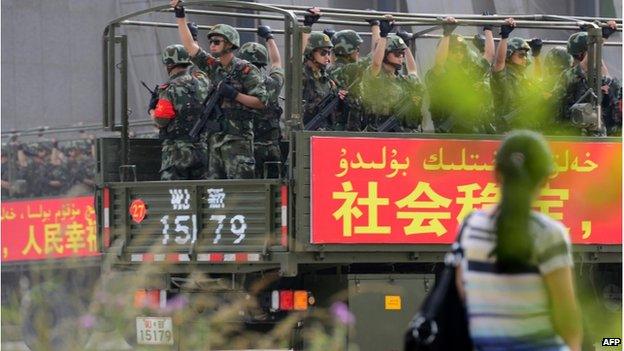
China has stepped up military drills and security in Xinjiang as part of its campaign against terrorism
Courts in China's Xinjiang region have jailed 32 people on charges of spreading extremist content online and organising terror groups, media report.
Three of them were jailed for life while the others received sentences varying from four to 15 years, according to Xinhua., external
Chinese officials have blamed militant Uighur groups for a growing number of violent attacks across the country.
China has seen several recent high-profile attacks on civilian targets.
In October last year a car ploughed into pedestrians in Tiananmen Square in Beijing, killing five people, and there have also been attacks at railway stations in Urumqi and Kunming.
The Xinjiang courts convicted the defendants on charges of using their mobile phones and social media to store, download and spread religious extremist and terror-related content.
The 32 people were also found guilty of organising and leading terror groups, constructing explosive devices, and "fanning ethnic hatred and prejudice".
In May, China launched what it called a "year-long campaign against terrorism" after 39 people were killed when five suicide bombers attacked a street market in Urumqi, Xinjiang's capital.
Authorities have since carried out a string of arrests and jailed numerous people on terrorism charges. Nine people were sentenced to death in Xinjiang on similar charges last month.

Uighurs and Xinjiang
Uighurs are ethnically Turkic Muslims
They make up about 45% of the region's population; 40% are Han Chinese
China re-established control of the region in 1949 after crushing the short-lived state of East Turkestan
Since then, there has been large-scale immigration of Han Chinese
Uighurs fear erosion of their traditional culture

Critics of China's policies in Xinjiang point to economic inequality and cultural and religious repression as other possible reasons for the growing radicalism and resentment.
China says it is pouring money into the Xinjiang region, but some Uighurs say their traditions and freedoms are being crushed.
- Published5 June 2014
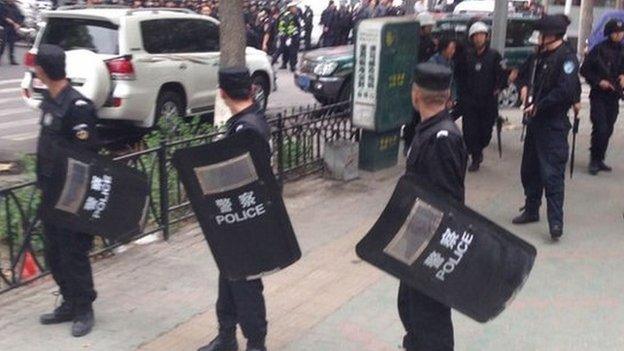
- Published28 May 2014
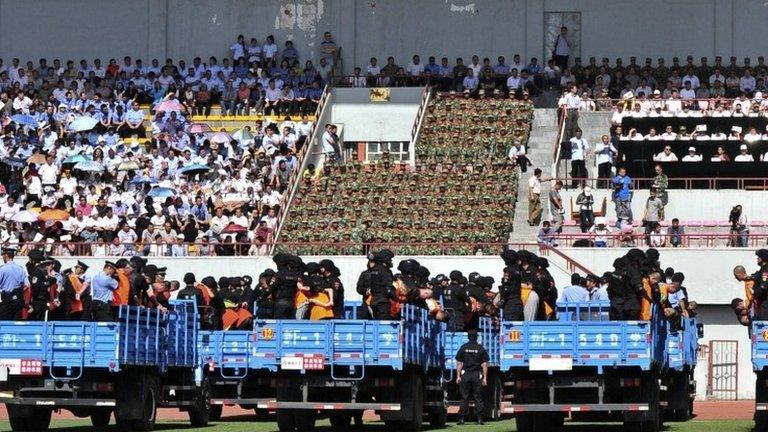
- Published27 May 2014
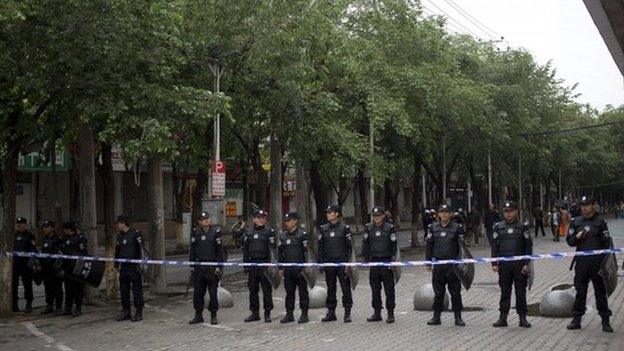
- Published23 May 2014
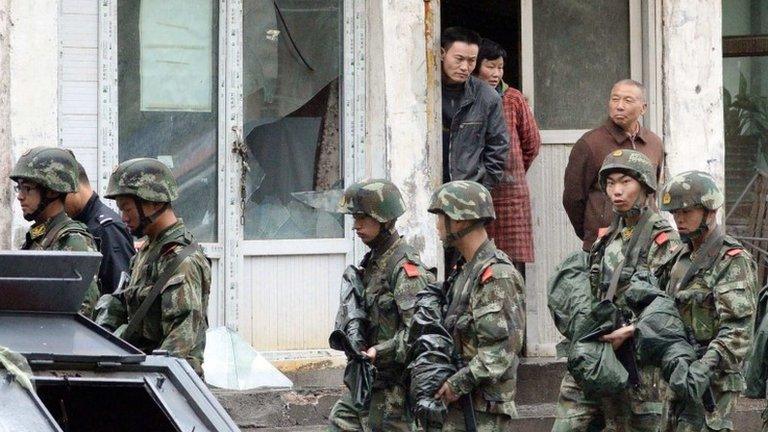
- Published26 September 2014
